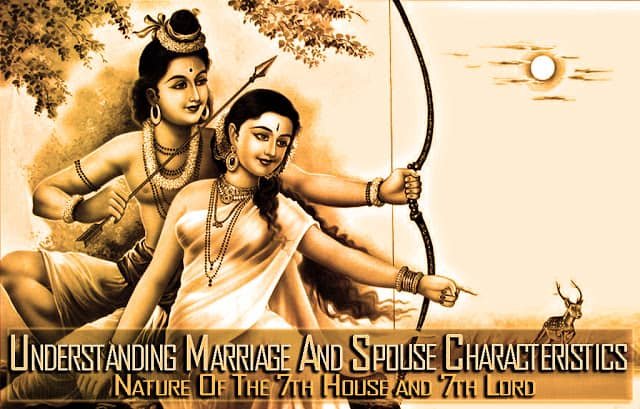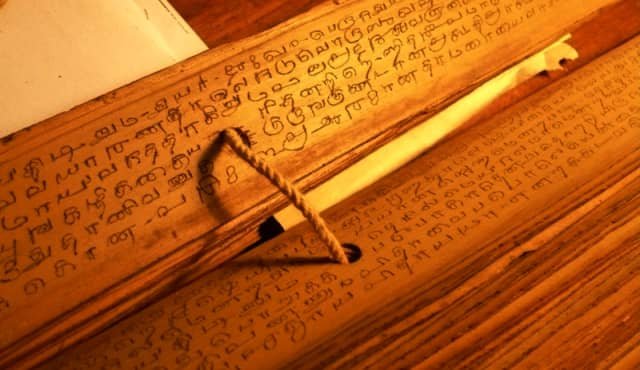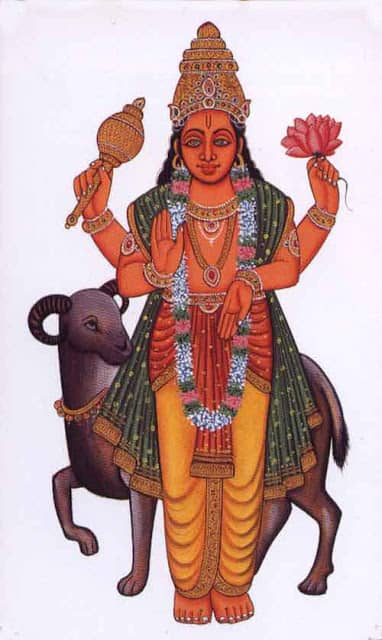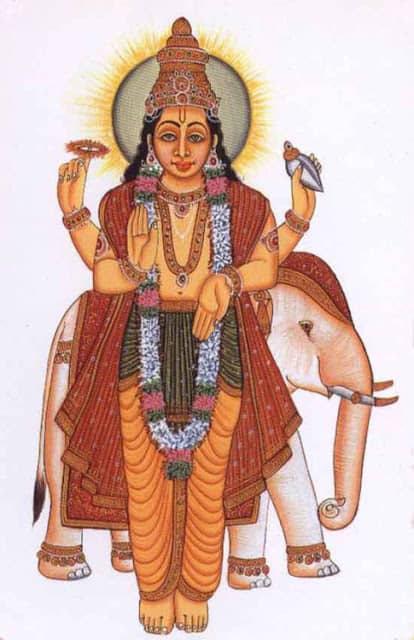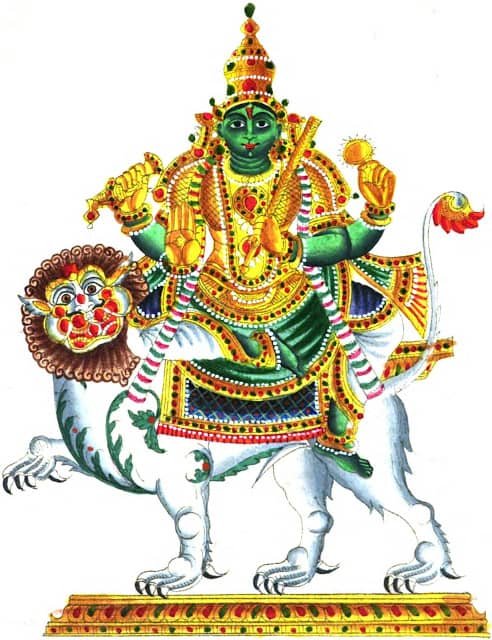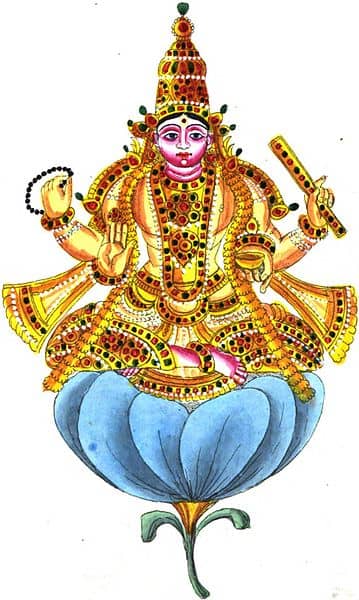How to Find Spouse First Alphabet : spouse in astrology, physical appearance, direction of spouse, 7th house, 7th lord and nature of spouse – Part 1
Keywords : How to Find Spouse First Alphabet : Understanding spouse in astrology, physical appearance, 7th house, 7th lord and nature of spouse,Marriage and Relationships, spouse appearance in astrology, spouse astrology, Spouse First name, spouse in astrology, type of spouse in astrology, Vedic Astrology, first letter of my life partner astrology.
Research Case Study: How to Find Spouse First Alphabet, Name Clues, Spouse Nature & Ruling Planets
(Revised and Redited Edition June 2017)
Written by Rocky Jamwal
Introduction
The process of ascertaining the initial letter of one’s prospective spouse’s name within the realm of astrology might be seen as a captivating pursuit. Various aspects contribute to the investigation of this enigma, encompassing the physical attributes, the orientation of the partner, the 7th house, the 7th lord, and the characteristics of the spouse.
In the realm of physical appearance, astrology posits that specific zodiac signs may exert an influence on the characteristics exhibited by one’s prospective life mate. For instance, in the event that the 7th house or its ruling planet is linked with the zodiac sign Aries, it is plausible that one’s marital partner may possess a robust and physically fit physique. Likewise, in the event that Taurus assumes a dominant position, it is plausible that one’s companion may exhibit a captivating and aesthetically pleasing physical presence.
Astrology can also provide insights into determining the direction of one’s spouse. The 7th house in astrology symbolises the domain of marriage and alliances, and its positioning in an individual’s birth chart can offer valuable insights into the potential origin of their future spouse. For example, in the event that the 7th house is situated in the eastern direction, it signifies the potential that one’s spouse may originate from the eastern region.
Moreover, the seventh Lord holds considerable importance in the prognostication of the initial letter of one’s spouse’s name. Astrologers possess the ability to discern the initial letter of an individual’s prospective partner’s name by examining the location and attributes of the 7th lord inside their birth chart. This information has the potential to facilitate the process of narrowing down the alternatives and establishing a foundational point for initiating your search.
Ultimately, comprehending the inherent characteristics of one’s potential life partner is vital in fostering a joyful and mutually beneficial partnership. Astrology offers important insights into the personality traits and qualities of prospective life partners. Astrologers can ascertain several attributes of one’s spouse, such as affection, compassion, ambition, and intellect, by analysing the planetary influences on the 7th house and its ruling celestial body.
In summary, astrology provides a range of methodologies for determining the initial letter of one’s spouse’s name. Valuable insights into the element of one’s life pertaining to future partners can be obtained by taking into account various factors, including physical appearance, direction, the 7th house, the 7th lord, and the nature of the prospective mate. It is important to acknowledge that astrology can offer assistance; however, the responsibility of cultivating a robust and gratifying connection with one’s spouse ultimately rests with the individual.
Methods for Determining the Initial Letter of Your Spouse’s Name
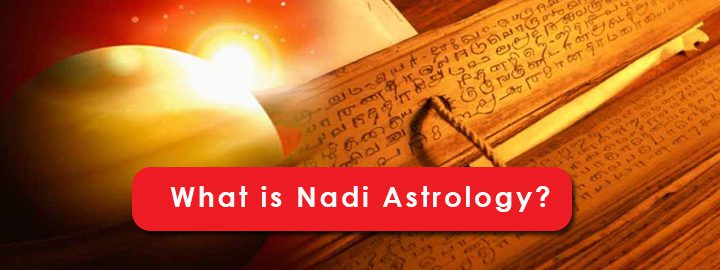
The ancient Nadi System encompasses numerous intricate methods for determining a spouse’s name or ascertaining the initial letter of their name. These methods are derived from Nadi Kadam, which consists of Sanskrit writings authored by Vedic seers. However, the process of uncovering these names necessitates extensive cognitive processes and a comprehensive understanding of translation techniques.
The leaves serve as documentation not only for Indian citizens, but also for individuals of many nations, religions, and beliefs. Furthermore, it has been indicated that approximately 40% of the global population is prone to obtaining these outcomes. It is possible that the remaining leaves may have incurred damage or been lost with the passage of time. The leaves are not just records for Indian nationals but also for people of other nationalities, religions, and creeds. It is also stated that about 40% of the people in the world are likely to get these results. The other leaves might have been damaged or may have been lost in the course of time.
Traditional Indian astrology is known as nadi astrology, and its roots may be traced back to India. It is predicated on the idea that palm leaves, also known as nadi granthas, contain written accounts of people’s lives from the past, the present, and the future. These ancient manuscripts provide in-depth information on an individual’s life, including the particulars of their birth, the history of their family, the chances for their work, their health concerns, and even the solutions to any troubles that they might have.
When compared to other schools of astrology, the Nadi school of thought takes a very different approach. It focuses on the fingerprint of an individual to determine the palm leaf that corresponds to their destiny rather than relying on the positions of celestial bodies at the time of birth. This allows it to be more accurate than other methods. The technique entails matching the thumb impression with the imprints on the palm leaves, which can be extremely complex and specialised depending on the situation.
After the right leaf has been identified, an experienced Nadi astrologer will decode the text, which is written in an old kind of Tamil script. This demands a significant amount of information as well as expertise in order to interpret the intricate language and symbols that are written on these palm leaves. The astrologer will then give their forecasts and insights about the individual’s life, offering advise and potential solutions to help the individual overcome obstacles and achieve their goals.
The accuracy and specificity of Nadi astrology is one of the most amazing qualities of this branch of astrology. Because of their uncanny accuracy, the forecasts that Nadi astrologers provide frequently take people by surprise. It is widely held that the writings on the palm leaves were penned by enlightened sages who have divine knowledge and insight into the destinies of particular persons. Because of this, the information that is included inside them is regarded as being extremely dependable and trustworthy.
An in-depth examination of several facets of a person’s life, such as their schooling, marriage, financial situation, health, and spiritual development, can be obtained through the practise of Nadi astrology. It gives people a road map to follow so they can navigate through the problems of life and make decisions based on accurate information. In addition, Nadi astrology recommends various cures and rituals to ease the effects of bad influences and to amplify the effects of favourable energies.
In recent years, not only in India but also everywhere else in the world, more and more people have been interested in Nadi astrology. People from many walks of life and cultural traditions consult with Nadi astrologers in the hopes of gaining a more in-depth insight of their lives and locating answers to the challenges they face.
In conclusion, Nadi astrology is a distinct and old style of astrology that provides specific and in-depth insights into an individual’s life by using palm leaf records as the primary source of information. Because of its precision and specificity, it has become a popular approach to consulting for advice and locating answers to problems encountered in everyday life.
There are 4 kinds of Nadi:
Jeeva Nadi : operates through the utilisation of the reader’s breath as a source of electricity. When individuals are venerated, they acquire intuitive abilities that enable them to make predictions about future events. Some of the most renowned nadi texts include Kakaibujandar Nadi, Brighu Nadi, and Sukar Nadi etc.
Abhayas Nadi : In the aforementioned procedure, Nadi Jyotishi employs the technique of fingerprinting the right or left thumb impression to ascertain the horoscope of the individual in question. Subsequently, utilising the individual’s birth date and time, they proceed to make predictions regarding the horoscope.
Kirantha Nadi operates on the principles of Hora Shastra time (Hora chakra) and utilises Etchani to make predictions about an individual’s future.
The Karantha Nadi : is derived from the Adharva/Atharva (in Tamil) Veda and is rooted in the practises of mantra and tantra.
Current status of Nadi Astrology and finding Spouse traits
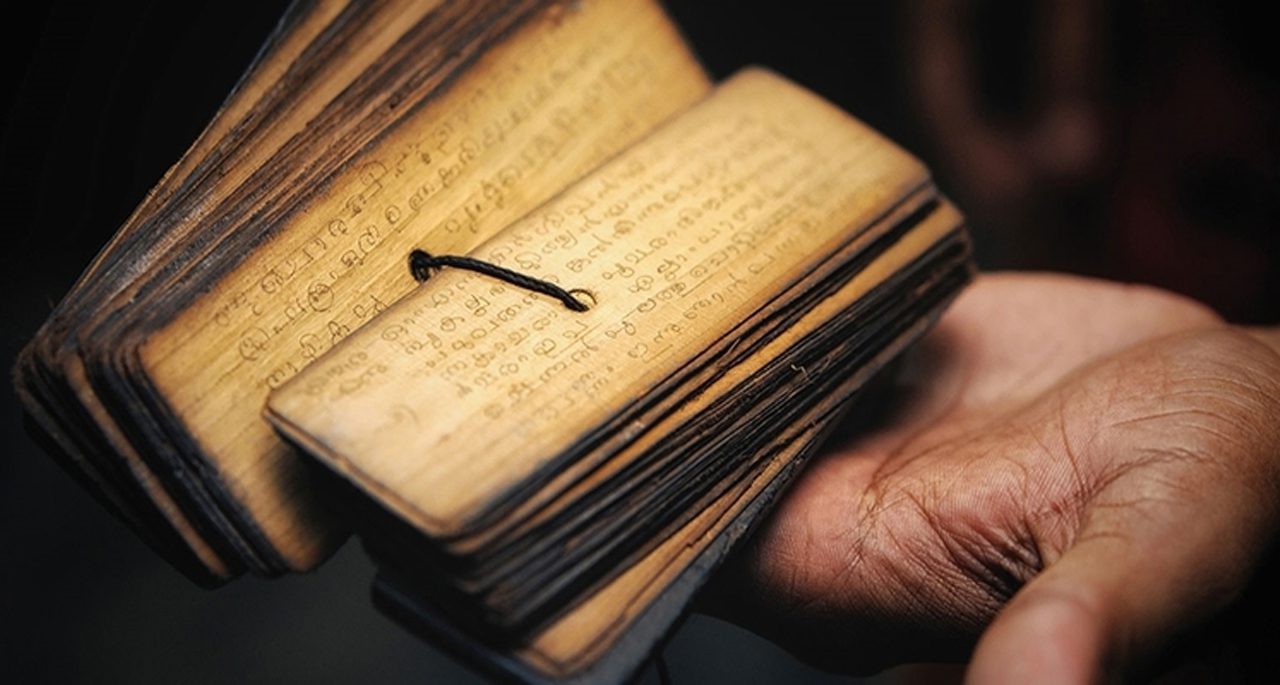
Currently, individuals in India who are engaged in the practise of the Nadi system have access to only the general practises associated with the first and second phases of this system. Despite its location in southern India. Although it is possible to acquire knowledge of a musical note without having prior knowledge of the Kandam system, this approach requires a significant level of expertise and comprehension of the Vedic Nakshatras and their associated musical notes, as well as the location of the chart.
In the analysis of the natal chart, it is imperative to consider the positioning of the 7th Lord, its corresponding disposition lord, Pada (divisional chart), as well as the nakshatra lord, Pada, and the placement of nakshatras. The topic of discussion pertains to the significance of rental signs and nakshatras in an academic context. The comprehensive procedure can provide a general understanding of the complete characteristics of a spouse and offer potential indications for their identity.
The text discusses several microdetails pertaining to the spouse’s name, the significance behind the spouse’s name, the content of the spouse’s letter, and the direction of the spouse’s benevolent horoscope. However, armed with this limited research data, one may potentially identify and analyse their partner’s name as well as the associated attributes of their partner.
The primary characteristic of this approach is its exclusive reliance on a nakshatra-centered naming system, wherein the identification of the spouse’s characteristics and name is derived from the moon nakshatra, the 7th lord nakshatra, and the dominant planet positioned in trines within the Natal chart.
The natal chart, specifically the placement of the planet in the trine aspect, holds significant influence over the Nakshatra and the traits of the native spouse as indicated by the elements of the Nakshatra and the planet. Furthermore, based on my observations throughout the duration of this course, it has been observed that this particular method is highly effective in situations where the natal chart of a child, along with Vedic rituals, entails a comprehensive analysis of the child’s natal chart subsequent to their birth. Additionally, the intonation of Akasharas from various Nakshatras exerts a significant impact on the natal chart, with the most potent planetary influence being observed in the trines.
The significance of a name is derived solely from the celestial impact on Rashi and the Nakshatra. When the seventh Lord, together with its disposition or Nakshatra Lord Planet, is positioned in a dual sign, it typically results in the amalgamation of two names inside a single entity. When a celestial body is positioned within a fixed astrological sign, it typically corresponds to a concise appellation derived from the elemental classification of fire, air, water, or earth. When an individual’s astrological sign is associated with a water element, it is said to provide insight into the significance of their name, which is determined by the planet associated with that particular water sign.
In the context of Sanskrit nomenclature, the designation of an oceanic entity may be attributed to a celestial body situated within the astrological sign of Cancer. Conversely, a celestial body positioned within the astrological sign of Pisces may be denoted as a river. Lastly, a celestial body located within the astrological sign of Scorpio may be designated as a little canal.
The identification of the planet’s tattva can provide a key indication for discerning the genuine significance of its name. In order to comprehend the variables influencing names, it is imperative to first direct attention towards the Sanskrit etymology underlying the name.
This is because the phonetic composition of vowels, or Aksharas, present in Nakshatras aligns with Prakriti, signifying that the significance of a name should reflect the effect of Prakrti on celestial bodies. As an illustration, with closer examination, the name “Alaknanda” can be identified as a river name originating from the region of Jambudweep. The term “Alaknanda” originates from Sanskrit and denotes a juvenile female kid aged between eight and ten years, commonly referred to as “Kanya.” References to this term may be traced back to ancient Hindu scriptures such as the Mahabharata and Vishnu Purana, where it is associated with a river originating from the Himalayas and merging with the sacred Ganga River. This observation suggests that the planets that exert influence on the trines of the natal chart ought to be positioned in the dual sign, particularly when accompanied by the effect of watery planets inside that sign.
In order to accurately forecast the meaning of a name and the Akashras associated with it, it is necessary to consider the various intricacies associated with names from both Vedic and ancient perspectives. The Nadi Scriptures contain Sanskrit names that are associated with meanings pertaining to the characteristics of nature (Prakriti). In the remaining instances, individuals who are unable to ascertain the authentic significance of a name should direct their attention towards the preeminent celestial body exerting influence over their trines. This influential factor is highly likely to impact the connotation and inherent qualities associated with the name.
The likelihood of employing this strategy in contemporary society is approximately 40-50%, owing to the fact that individuals no longer adhere to Vedic procedures as outlined in the Scriptures while naming their offspring. The situation can be characterised by a binary outcome, with equal probabilities of success and failure (50-50) or with a little higher probability of failure (40-60). While this approach may yield positive results in certain instances, it is not universally applicable. Therefore, it is necessary to explore alternative techniques for the remaining scenarios. Prior to delving into the methodology, it is imperative to ascertain the true identity of one’s spouse, determine their categorization, and establish their alignment with the aforementioned condition.
Significant Residences: It is vital to acquaint oneself with the abodes that are associated with the characteristics of one’s marital partner.
Important Houses one should know those are connected with the Nature of Spouse
Placement of planets in the 7th House:
The 7th House pertains to an individual’s attitude, sexuality, libido, and preferences regarding their relationships or partnerships. The success of a partnership is not solely determined by the tangible benefits it offers, but more by the attitudes and level of commitment exhibited by the individuals involved. The aforementioned statement merely illustrates one’s professional occupation or the desired characteristics in a partner, rather than providing an accurate depiction of the actual qualities possessed by a spouse. The perception of a marital partner is observed through the astrological placement of the planet situated in the 7th House, commonly referred to as D9.
This planetary configuration provides significant insights on the characteristics and attributes of the spouse. For instance, the placement of Mars in the seventh house of the D9 chart indicates that the spouse would possess a highly energetic and vibrant personality. Additionally, physical attributes such as a round face, stout physique, and a short stature with a reddish complexion may be observed.
However, it is important to note that the overall portrayal of the spouse can be significantly influenced by factors such as the zodiac sign, planetary aspects, and the strength of the seventh lord in the D9 chart. The planetary placements in the 7th house of an individual’s birth chart provide insights on their preferences, inclinations, and desired qualities in matters related to partnerships, personal interests, and potential life partners. The descendant, being the antithesis of the ascendant, mostly pertains to one’s conscious selection of a life partner, encompassing the preferred characteristics and attributes sought in a romantic relationship.
In this context, the concept of “Beneficial” refers to factors that contribute positively to a relationship, while “Malefic” represents elements that have a detrimental effect, obstructing or acting as a hindrance to the partnership. Malefic factors can be seen as the direct antithesis of the native, therefore engaging in oppositional actions, while Beneficial factors provide support either through the spouse or the business partnership.
Planets placed in 7th House
For instance, in the event that the moon is positioned in the 7th house, it signifies a desire for an emotionally responsive and nurturing partner in the context of a marital union. This individual is sought after for their ability to provide a sense of care and tenderness akin to that of a parent, thereby fostering a partnership characterised by emotional support and nourishment. In essence, the individual seeks a spouse who exhibits qualities of empathy and compassion within the realm of matrimony.
Mars: In the context of astrology, Mars is said to obstruct the formation of harmonious partnerships due to its association with individuals who possess assertive and confrontational tendencies. Consequently, these individuals tend to engage in conflicts with those they deal with, finally gravitating towards partners who exhibit boldness and courage, qualities that mirror their own disposition.
In the context of Mercury, the individual is actively searching for a mate who possesses qualities such as intelligence, expertise, youthfulness, knowledge, and effective communication skills. In the context of partnerships, effective communication plays a pivotal role in fostering mutual understanding and strengthening the link between the involved parties. The degree to which a partner is youthful and aesthetically pleasing positively correlates with their ability to attract a spouse.
In the realm of Venus, individuals exhibit an unrestrained libido and sexual energies, which contribute to their tendency to engage in various partnerships while being committed. This phenomenon is particularly observed when Venus in the 7th house is affected by malefic planets or the lunar nodes. Individuals with Venus positioned in the 7th house tend to have a heightened inclination towards aesthetics, desire, physical attractiveness, and to some extent, amorous and harmonious interpersonal connections. In the context of interpersonal relationships, individuals are advised to exercise self-regulation over their sexual impulses to mitigate potential issues both prior to and following engagement. Similarly, it is possible to examine characteristics of celestial bodies beyond Earth.
Placement of 7th Lord
The 7th Lord serves as a significant indicator of the physical attributes of one’s spouse. It encompasses various aspects related to the spouse’s physical well-being, including their overall health, body composition, facial features, outward appearance, and certain minor personality traits. Additionally, the 7th Lord provides insights into the direction of the spouse, the future prospects of the marital union, personal desires and expectations from the spouse, as well as the anticipated outcomes and implications for the future of the marital partnership.
The 7th Lord Nakshatra and its corresponding pada play a crucial role in determining the characteristics of one’s spouse, including their true nature and various intricate aspects associated with them. These indicators provide valuable insights into the attributes exhibited by the spouse.
This text provides insights into the many categories of individuals, both male and female, with whom we engage in social interactions. Additionally, it offers indications on the physical appearance and desirable attributes we seek in a potential life partner. It also touches upon the identity and behavioural characteristics of our chosen spouse, as well as the criteria for eligibility in the context of marriage.
Mars (Boyfriend/Husband and Real Man)
The topic of discussion pertains to the characteristics and qualities exhibited by individuals of the male gender, specifically in the context of romantic relationships and the broader concept of masculinity. When examining the characteristics of romantic partners, it is customary to consider the North Indian astrology system. However, in the South Indian Nadi system, the planet Mars is specifically associated with the attributes of husbands or the men with whom individuals are interested in or seek to engage.
The rationale behind this is straightforward. Mars symbolises attributes such as power, protection, and sexuality, which are associated with both genders. Throughout the course of evolution, women have demonstrated a greater inclination towards seeking a partner who possesses qualities of strength, capable of safeguarding and providing for them, thereby instilling a sense of security. The differential gene orientation or DNA development in both genders has been a determining factor from the inception of evolutionary processes.
The underlying rationale is that women exhibited physical vulnerability at a certain period of development and consequently developed a heightened inclination towards Mars energy. This energy is perceived as a source of protection and sustenance under challenging circumstances, and is discernible through Mars’ typical attributes, namely bravery, courage, power, fighting spirit, and protective qualities. The individuals displayed a greater inclination towards guys who possessed the ability to engage in combat on their behalf, provide care, offer protection, and ensure sustenance even under adverse circumstances.
However, in contemporary times, circumstances have undergone a complete transformation. In contemporary society, there is a growing trend among women to exhibit a heightened interest in males who possess status-oriented and power-driven qualities. This inclination stems from the recognition that, in today’s context, the ability of men to provide protection and wield influence is closely associated with their social standing and capacity to fulfil various requirements. Who have the capability to furnish all the necessary amenities and conveniences essential for contemporary living in the ordinary realm?
Hence, it is imperative that the individuals seek personal or close interactions with men who are aligned with the sign of Mars and its corresponding house placement. However, individuals who identify as Maritain face a challenge with their energy, characterised by its high density and vigour, as it strives for personal development and empowerment. Individuals primarily engage in conflict for personal reasons such as bolstering their self-esteem, pursuing personal progress, realising individual aspirations, or attaining personal hopes and objectives. This inclination towards self-centered motivations is indicative of notions of masculinity and the planet Mars. Advocate for the principles that define the positive aspects of masculinity.
In more formal terms, Martians exhibit a strong inclination towards prioritising their personal growth and are unwilling to make concessions, even when faced with the need to sacrifice their aspirations for the betterment of a partnership. Consequently, they tend to terminate relationships prematurely and redirect their efforts towards pursuing their own passions and achievements, thereby emphasising their individual objectives.

In the context of marriage, the establishment of a healthy relationship necessitates the presence of mutual understanding, guiding, and sharing between the two individuals involved. However, individuals adhering to the Maritain philosophy often struggle to achieve this level of communication owing to the presence of ego, arrogance, and inflexible attitudes. In contemporary circumstances, Mars tends to be primarily favoured by women for short-term and casual partnerships, sometimes referred to as “The Boy Friends.” However, in the long term, women desire a state of equilibrium and a harmonious married partnership, qualities that are noticeably absent among the inhabitants of Mars.
In contemporary times, there is an increased inclination among women towards establishing enduring and committed partnerships with men who demonstrate a proactive approach and with whom they envision a lifelong companionship.
Women tend to prefer boyfriends as companions for short-term adventures, but they are less inclined to pursue long-term commitments with them. Similarly, Mars, as a celestial body, does not exhibit a willingness to conform to partnership norms or prioritise mutual development. Rather, Mars emphasises individual growth above collaborative endeavours.
Typically, Maritain energy exhibits a lack of concern for others. However, in actuality, it pertains to the discourse surrounding the sexuality or sexual energy of women that individuals seek in their prospective partners. When a compatible energy level is discovered, a relationship commences or sparks, yet ultimately fails to progress.
In every connection or partnership, the sole requirement for progress is Kutumbh, a concept that encompasses an ongoing process contingent upon the passage of time and the cultivation of mutual understanding between the involved parties. The growth of a relationship between two individuals is indicative of the extent to which they engage in mutual understanding and invest in the exchange of ideas. Individuals may exert effort in order to facilitate optimal functioning within a partnership. The essential essence of Jupiter is in its association with several aspects such as thinking, personal development, familial happiness (Kutumbh sukh), and the expansion of family, children, or financial circumstances.
The Mars Sign Positions and Placements in the Natal Chart serve as significant markers for individuals’ selection of initial male partners, specifically in the context of transient relationships such as boyfriends, attractive male friends, or male colleagues within their professional environment. To gain a more comprehensive comprehension of the specific categories of men that pique their attention, it is advisable to examine the astrological sign and positioning of Mars within both the D1 and D9 charts. The following examples illustrate the concept of Mars sign placement as it pertains to astrology.
The Natal chart encompasses various astrological factors, including Jupiter, which serves as an indicator of the husband’s energy within a woman’s chart. It also signifies the specific type of husband that the woman finds intriguing and with whom she can experience mutual expansion and growth. This interpretation is commonly observed in the northern region of Indian astrological analysis. However, according to Nadi texts, the role of Mars is emphasised as a representation of the husband in the southern region.
From a logical standpoint, Jupiter is associated with the expansion of various aspects, including knowledge, thoughts, riches, status, and employment opportunities. The inherent characteristic of this phenomenon is to undergo expansion. The aforementioned phenomenon facilitates growth and development across several domains, instills optimism and prospects in diverse areas, fosters intellectual enlightenment and spiritual nourishment, and contributes to the extension of familial bonds and material prosperity. Women often seek to acquire a deeper understanding or wisdom in their lives, with the aim of nurturing their inner emotions, intellect, and reflections.
However, a notable challenge arises when women get drawn to the qualities associated with Mars. Once married, their attraction shifts towards the desires associated with Jupiter, as Jupiter possesses attributes that Mars lacks the ability to fulfil. This phenomenon explains why women may have feelings of romantic attraction towards one individual, yet ultimately choose to enter into a marital union with a different male partner.
In the context of a marital relationship, it is commonly argued that women often require support and a sense of security due to their perceived emotional vulnerability. Individuals require assistance at periods of vulnerability, such as pregnancy, as well as during various aspects of their lives. However, Mars is incapable of fulfilling these needs. Mars exhibits a proclivity for engaging in conflict, embracing individualism, and pursuing recreational activities. This is the reason why they selected Jupiter as their spouse, rather than Mars.
The positioning of signs can provide insights about a woman’s selection of a spouse. Presented below are several examples of signs and their corresponding positions.
Mercury presents itself as a potential candidate for the individual in question who garners the interest of women. However, the issue lies in Mercury’s status as a youthful prince, lacking in maturity. Consequently, he often finds himself overlooked by most women when considering potential spouses or romantic partners. This can be attributed to Mercury’s inclination towards intellectual pursuits and effective communication, rather than prioritising responsibility and sexual appeal.
In interpersonal relationships, individuals with a deep bond, referred to as “Mercury,” often exhibit a strong inclination towards developing an attraction to those of the opposite gender, denoted as “Venus.” Conversely, women tend to display a propensity for being drawn to men, symbolised by “Mars.” Meanwhile, Jupiter represents an individual who consistently prioritises their professional obligations, actively engaging in tasks that contribute to the collective advancement of others.
The phrase “Vasudev Kutumbkam” is a Sanskrit concept that is sometimes translated as “the world is one Mercury is a term used to describe those who consistently find themselves overlooked by women in the context of potential romantic partners. However, these individuals often possess strong qualities as friends, forming tight relationships with those who are in their immediate social circle.
In the context of astrology, the celestial body known as Venus is commonly associated with the representation of a female partner, such as a wife or girlfriend, within the astrological chart of a masculine individual. In the context of a woman’s birth chart, it is commonly understood that Jupiter symbolises her spouse, while Mars symbolises her romantic partner. This distinction arises from the recognition that women’s experiences and social roles sometimes diverge from those of males. Women exhibit greater emotional complexity in comparison to men.
Within societal structures, there exists a discernible distinction between the roles assigned to men and women. As a consequence of this feature, it is observed that women may develop affection for men who possess qualities such as charm, masculinity, and physical attractiveness. However, it is important to note that these attributes alone do not suffice to meet the essential needs of life. Consequently, women choose to enter into marital unions with men who are capable of providing the necessary support and security in all aspects of life. However, the perspective differs for men, as they primarily seek affection and companionship from women.
Consequently, males often perceive no distinction between a girlfriend and a wife, considering both roles as equivalent in terms of fulfilling their emotional needs. As a consequence, the celestial body Venus governs both romantic partners and spouses inside the astrological chart or personal life of a male individual. The function of a woman in a man’s life encompasses the fulfilment of his aspirations, provision of support for his personal endeavours, enhancement of his overall well-being, and assistance in meeting his various life obligations. By examining the placement of Venus in the astrological chart of a male individual, it is possible to make predictions regarding the characteristics and qualities of their spouse.
The acquisition of spouses by men is contingent upon the level of Venus’ dignity as indicated in their astrological chart. The following items can be examined below:
1) Venus in Aries: In the event that an individual possesses Venus in Aries, it is plausible that they may exhibit a propensity to draw the attention of a female counterpart who displays pronounced characteristics of self-reliance, assertiveness, fortitude, resolute ambition, physical athleticism, and a proclivity for engaging in competitive pursuits. The aforementioned individual exhibits a propensity for impulsive behaviour within the realm of romantic relationships, possesses a captivating allure, and displays a strong inclination towards individualism. The individual in question exhibits a strong inclination towards embarking on daring and exploratory endeavours, particularly in the realm of travel. Men seek a spouse who provides them with motivation and exhibits dominant characteristics in their lives.
2) Venus in Taurus: In the event that an individual possesses Venus in Taurus, it is plausible that they will exhibit an inclination towards attracting women who possess qualities of sensuality, physical attractiveness, and possess a pleasant vocal timbre. The individual in question exhibits a proclivity for opulence, obstinacy, modesty, pragmatism, and a penchant for indulging in fine cuisine. The individual seeks a female partner who exhibits loyalty within the context of a romantic relationship and provides them with a sense of financial stability. These individuals actively seek out ladies who own significant wealth.
3) Venus Placement in Gemini: In the context of astrology, when an individual possesses Venus in Gemini, it is posited that they may exhibit a propensity to draw the attention of a female counterpart who displays communicative prowess, intellectual acumen, creative inclinations, a penchant for enjoyment, and a preference for being involved in a romantic partnership. The individual in question possesses a proclivity for writing, exhibits amiable conversational skills, exudes charisma, and demonstrates expertise in manual dexterity activities such as stitching, among others. In this context, males are paired with women who exhibit high levels of intelligence and demonstrate a strong commitment to domestic responsibilities.
Conclusion :
In conclusion, it may be inferred that This study focuses on doing research through a case study to gain a comprehensive understanding of the characteristics associated with the 7th house, the 7th lord, and the planetary influences that contribute to the formation of partnerships.
The primary objectives of this investigation include determining methods for identifying the initial alphabet of a spouse’s name, interpreting clues related to the spouse’s name, analysing the nature of the spouse, and identifying the ruling planets associated with relationships.
In the subsequent section, we shall endeavour to acquire the knowledge of determining the identity of an individual’s marital partner in 2nd part.
Stay connected for 2nd part.
Regards,
Rocky Jamwal
Views: 5425


